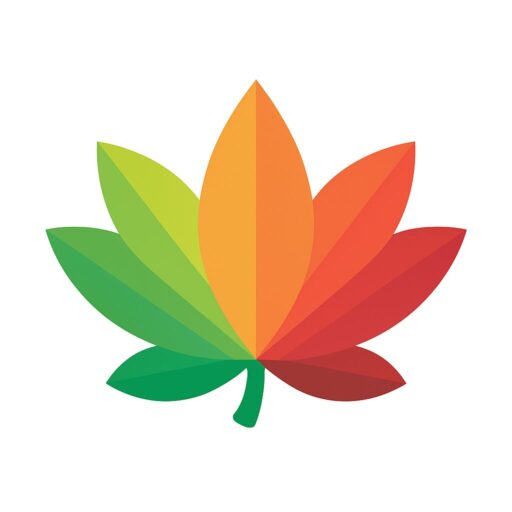Master AI To Achieve Your Life’s Goals
In today’s fast-paced world, artificial intelligence (AI) is no longer just a futuristic idea—it’s a powerful tool that can change how you achieve personal growth and peak mental health. Many of us struggle to keep up with the nonstop demands and distractions of life. Imagine if AI could help you reduce stress, improve focus, and guide you to the life you want.
Mastering AI doesn’t require technical expertise. It’s about using better tools to save you time and better mental clarity. This article will get rid of common myths about AI and explore its benefits. It offers practical tips for how to use it in your daily routine and shows you how it can lead to a calmer, better life.
Myths About AI Mastery
When people hear “AI mastery,” they often imagine complex coding or a steep learning curve meant only for nerds. This is wrong. Today’s AI tools are designed to be easy to understand and use, without needing technical skills. You don’t need to deal with fancy algorithms. You can take advantage of apps with ease that help organize your schedule or guide your meditation.
Another common mistake is the fear of missing out on the latest AI trends and make some avoid AI altogether. Remember though, mastery doesn’t mean chasing every new tool—it’s about selecting the ones that truly meet your needs.
Some see AI as cold or impersonal. In fact, it’s created to understand your needs, by providing thoughtful and practical support for everyday tasks. If your ignore these myths, you can unlock the potential of AI for your own personal growth.
The Mental Impact of AI
AI impacts our mental well-being in unexpected ways. On one hand, poorly managed technology—such as constant notifications or endless scrolling—increases stress and distraction. It creates dopamine-driven habits that keep us hooked. If misused, AI can make this effect worse by overwhelming us with information or automating tasks so much that we feel out of touch. For example, relying too heavily on AI for decision-making undermines confidence in our own judgment at times.
AI can be truly life-changing. It streamlines tasks, reduces distractions, and clears mental clutter. AI detects patterns in your habits—like sleep or work—and offers hints to make better decisions. The key is to treat AI as an tool to sharpen your focus and emotional strength. By knowing its limits, you can harness AI for a healthier, more balanced mind.

Steps for AI Mastery
Mastering AI for personal development is about using it thoughtfully in your life. Here are some practical steps to get started:
1. Explore AI Tools for Productivity
Use AI-powered apps to organize your day and minimize distractions. Tools like Notion AI can help you manage tasks, set goals, and pick out what matters. Try asking an AI tool like Chat GPT to suggest a daily schedule based on your to-do list. For example, you can say, “Help me plan my workday with breaks for focus and relaxation.” This creates structure without overwhelming you.
2. Set Limit with Tech
AI can help you manage screen time. Apps like Forest, paired with AI assistants, can block distracting sites during work hours. Set clear rules, such as no social media after 8 p.m., and use AI to enforce them by sending reminders or tracking usage. AI apps can offer tips on creating tech-free zones, like keeping devices out of the bedroom to improve sleep.
3. Use AI for Mindfulness
AI-driven meditation apps, like Calm or Headspace, use algorithms to tailor sessions to your stress levels or mood. You can also ask general AI apps for guided breathing exercises or prompts for journaling to process emotions. For instance, try, “Give me a five-minute mindfulness exercise for stress.” These tools make mindfulness accessible, even on busy days.
4. Use AI for Learning and Growth
AI can personalize learning to boost your skills or hobbies. Platforms like Duolingo use AI to adapt lessons to your pace. Want to develop a new habit, like writing or exercising? Ask AI for a step-by-step plan, such as, “Help me build a habit of daily journaling.” AI can break goals into manageable steps, keeping you motivated.
5. Reflect and Adjust
Periodically check in on how AI is working for you. Use tools like Google’s Digital Wellbeing or ask AI to analyze your weekly habits: “Am I spending too much time on my phone?” Adjust your AI use based on what’s helping or hindering your well-being. The goal is balance, not perfection.

Other Ways to Fill the Gaps
AI is powerful, but it’s not a cure-all. To fully realize personal growth, pair AI with offline activities that ground you and spark joy. Here are some ideas to complement your AI use:
- Connect with Nature: A walk in the park or a hike can clear your mind in ways no app can. Nature restores focus and reduces stress, complementing AI’s organizational tools.
- Engage in Creative Hobbies: Painting, writing, or playing music lets you express yourself without a screen. AI can inspire, but the act of creating is deeply human.
- Build Real-Life Connections: Spend time with friends or family without devices. AI can help you plan a gathering, but the laughter and stories are all you.
- Practice Analog Reflection: Keep a physical journal or sketchbook to process thoughts. Unlike AI-driven journaling apps(Mindsera or Rosebud), handwriting engages your brain differently.
These activities fill the emotional and creative gaps that technology can’t address. They create a balanced approach to personal development.
The Benefits of AI Mastery
When used correctly, AI can improve your life. By automating boring tasks—like scheduling or tracking habits—AI frees up your mind and reduces stress. Better sleep comes from using AI to limit evening screen time or guide relaxation. It can suggest bedtime routines, like reading or stretching, to help you wind down.
Boost creativity with AI to filter out mundane tasks, and give you time to explore new ideas or hobbies. By reducing digital burnout, AI helps you be more present, and thereby strengthening relationships with those around you. Imagine having deeper conversations because you’re not distracted—AI makes it possible.
Finding Your Balance
AI mastery isn’t about using every tool available or relying on it for everything. It’s about finding what works for you. Some might love AI-driven productivity apps, while others benefit more from mindfulness tools.
Experiment with one or two strategies. Notice how you feel—calmer, more focused, or perhaps more in control. If something doesn’t click, tweak it. The goal is a sustainable balance that improves your life without feeling rigid or overwhelming.
Take the First Step Today
Mastering AI for personal development is about small, planned steps. Start by picking one AI tool and use it to simplify one part of your day. Something like “How can I reduce distractions this week?” or try a five-minute AI-guided meditation. Notice how these changes make you feel—calmer, more present, or simply clearer-headed. AI isn’t here to replace your efforts; it’s here to improve them. With mindful tech use, you’re not just making life simpler—you’re focusing and building a life that feels richer and more connected. Take that first step today, and let AI be your guide to a better you.


